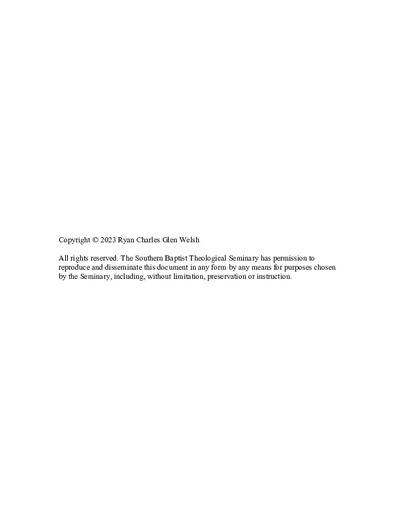| dc.description.abstract | In this dissertation, I argue for the rejection of the core tenets of transgender ideology. At their foundation, transgender identities result from an ideology that affirms (1) the existence of gender identity and (2) that gender can, and sometimes does, misalign with biological sex. I offer both a philosophical and theological rebuttal to these assertions. Chapter 1 serves as an introduction to this study. In chapter 2, I present an overview of today’s transgender cultural moment. I define key terms and describe the impact that transgender ideology has had on popular culture, politics, education, business, and medicine. In chapter 3, I offer an explanation of how American society arrived at a place where transgender identities are understood as rational. I argue that the path stretching from Friedrich Nietzsche to Michel Foucault to feminism to Judith Butler has led to a denial of human nature and morals, as well as a redefinition of sex and gender. These denials and redefinitions result in the philosophical and theological heterodoxies present in transgender ideology. In chapter 4, I present a philosophical rebuttal to such heterodoxies. I argue that sex and gender cannot misalign in any rational way without the employment of rigid gender stereotypes. By using Thomas Nagle’s article “What Is It Like to Be a Bat?” I show that a person cannot claim to be a member of the opposite biological sex in any rational way. Additionally, I contend that “gender” has become too broad and diverse a category and is, therefore, confusing and unhelpful in modern discourse. In chapter 5, I move beyond the philosophical and contend theologically. I demonstrate the gnostic nature of transgender ideology’s sharp mind-body split and juxtapose it with the value and meaning that Scripture communicates about the human body. I argue that sexed-embodiment is the natural state of human existence and is therefore good as a part of God’s created order. I contend that any attempt to change God’s created order (the attempt to change a person’s sex/gender identity) is an affront to God’s authority and an endeavor to usurp God’s good intentions for His image-bearers. Chapter 6 concludes this study. | en_US |

